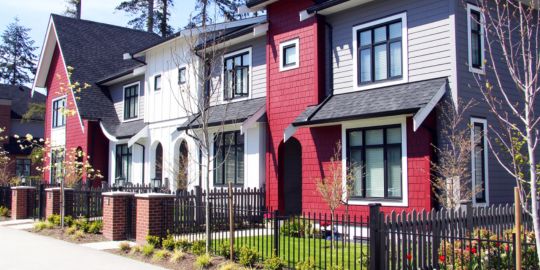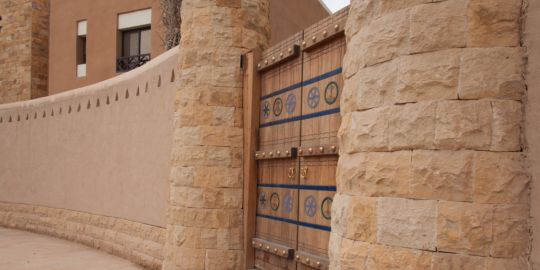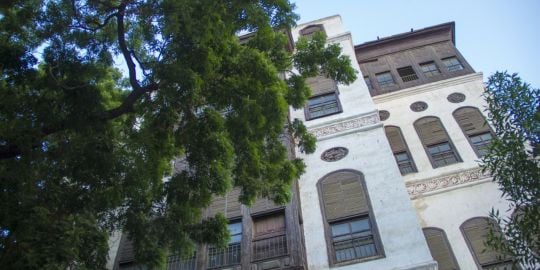Buying real estate in Riyadh

Even though Saudi Arabia has experienced significant changes in the past years, the local real estate market remains quite promising. With that, there are still very few expats who opt for buying housing in the country. Instead, most expats living in Saudi Arabia prefer to rent, save their money and invest it back home.
However, if you are considering staying in Saudi Arabia for the long term and are looking into purchasing real estate, this article offers a helpful overview of your options.
Is buying property in Saudi Arabia worth it?
Buying property is always a very personal decision, guided by a variety of factors. However, as we've mentioned above, expats in Saudi Arabia rarely opt for purchasing real estate in the country — for a number of reasons,
First, the majority of foreigners residing in the capital are here on work contracts. This means that they rarely plan to move to Saudi Arabia for good and, instead, prefer to focus on work, savings and making investments back home.
Other reasons for expats opting out of buying property in Riyadh are high property prices
and related administrative complications. Foreign property buyers need to first get approval from the Ministry of Housing. Plus, there are also restrictions in place on where expats can buy property: for example, housing in Mecca and Medina are strictly off limits.
This is why the majority of expats settled in Saudi Arabia prefer to rent — especially, since most big cities in the country offer convenient compound living for new residents.
Real estate market in Riyadh
Riyadh's real estate market became the most attractive when oil prices began to drop in Saudi Arabia like in the rest of the region. Since it is home to the world's second-biggest oil reserve, the Kingdom of Saudi Arabia (KSA) has been relying on the oil industry for many decades. Even though it would not be correct to state the contrary, the real estate market in Saudi Arabia seems to be taking the lead. The country is no longer dependent solely on oil and the petrochemical industry.
Thanks to the development of tourism and entertainment, more and more real estate investors are now attracted to Saudi Arabia, and it's major cities like Riyadh. In fact, large compounds are being built everywhere to cater to the growing needs of expats like the wealthy Saudi nationals. From modern apartments to luxury villas, there is something for all tastes, even though prices are likely to be high.
It's also worth noting that the oil downfall had a significant impact on the local real estate market in recent years. While it remains challenging for locals to own property, apartments and villas have become rather affordable for expats looking to live and invest in the city.
Procedures for buying property in Riyadh
Expats looking to buy property in Riyadh have to request for authorisation from the Ministry of Housing. Note, however, that procedures can be long and tedious — these can take up to a year. Once you get this authorization letter, you can contact the seller to carry on with the process. Most of the time, properties are bought in cash, so make sure to have the required amount readily available. Taking out a mortgage is also an option — however, it's quite a complicated process for expats with a lot of hoops to jump through.
Important:
Never sign a sales contract prior to confirming your eligibility to buy property in Riyadh. Seek legal advice before proceeding.
In general, property prices are negotiated between the buyer and the seller, but you can also seek the assistance of a legal representative or a broker. However, you're advised to make sure whether the seller is really the owner of the property you're intending to buy. This can be checked at the Sharia Court. Also, the title transfer, as well as all other documents have to be verified and stamped by the court.
Mortgages in Saudi Arabia
If you do plan to purchase accommodation in Saudi Arabia, you will probably want to look into mortgage options.
In theory, both expats and locals can apply for home loans in the country. However, the “market” of mortgages in Saudi Arabia is still just developing. What this means is that mortgage buyers would often “lose the battle” against cash buyers. Plus, some banks in Saudi Arabia won't issue mortgages to expats.
Because of this, some expats who want to buy property in Saudi Arabia, choose to take out loans from banks in their home countries. Naturally, this is something that requires lots of research and should only be done upon careful consideration and consultations with professionals.
Note that financing in Saudi Arabia works in accordance with the Sharia Law — and this affects how interest rates work. Basically, interest isn't charged in a standard way. Instead, if you take out a loan, you will be making two different payments: one for the main part of the loan and the other for the “interest” part of the loan. Additionally, banks mustn't “punish” their clients too strictly if the payments are missed or late.
Banks also give our fixed-rate mortgages, known as murabahas — but these are only available to locals.
If you apply for a loan from a bank in Saudi Arabia, you will need to present the following:
Proof that you have long-term stable earnings. Note that if you work for a smaller company and don't have a substantial income, there is a high probability that your mortgage application will be denied.
A deposit paid in full. Note that the money for the deposit will need to be your own savings and not a bank loan. If your deposit comes from borrowed funds, your loan will probably be denied.
A letter of approval from the government. Note that as an expat you can only purchase property in Saudi Arabia to live in yourself and are only allowed one letter of approval.
Property prices in Riyadh
As the real estate market in Riyadh tends to fluctuate, it's best to keep your fingers on its pulse, so to speak. Scan local real estate websites to get a better idea of the current state of the property market: Bayut, PropertyFinder, OpenSooq, Aqar and others.







